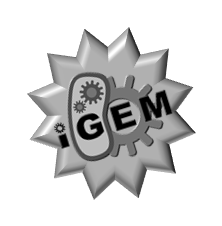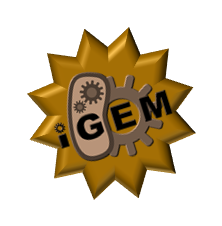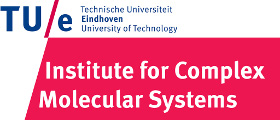Team:TU-Eindhoven/Achievements
From 2013.igem.org



Contents |
Our Achievements
Below stands the judging criteria we comply with.

Bronze Medal
Team registration.
Complete Judging form.
Team's project description on the wiki and team's part on the Registry of Standard Biological Parts.
Present a poster and talk at the iGEM Jamboree.
At least one new standard BioBrick Part or Device:
- From [http://parts.igem.org/Part:BBa_K1123000 BBa_K1123000] to [http://parts.igem.org/Part:BBa_K1123021 BBa_K1123021]

Silver Medal
Experimentally validate that at least one new BioBrick Part or Device of your own design and construction works as expected.
Document the characterization of this part in the 'Main Page' of that Part's/Device's Registry entry and submit this new part to the iGEM Parts Registry:
- [http://parts.igem.org/Part:BBa_K1123003 BBa_K1123003] and [http://parts.igem.org/Part:BBa_K1123005 BBa_K1123005]
Your project may have implications for the environment, security, safety and ethics and/or ownership and sharing. Describe one or more ways in which these or other broader implications have been taken into consideration in the design and execution of your project.
These aspects have being considered on our project and the detail description can be found on the public safety section of our wiki.

Gold Medal
Improve the function of an existing BioBrick Part or Device, enter this information in the Registry, create a new registry page for the improved part, and submit this part to the iGEM Parts Registry.
For the 2013 TU-Eindhoven iGEM project we wished to express MRI contrast providing proteins upon bacteria entering anaerobic tumours. To induce the expression of these proteins we would be making use of an FNR promoter just like the NirB promoter. To design our promoter we made use of an article (Anne M.L. Barnard, Jeffrey Green, and Stephen J.W. Busby, Transcription regulation by tandem-bound FNR at Escherichia coli promoters. Journal of bacteriology 185.20, 5993-6004 (2003)). From this article we extracted the data for our promoter, by choosing the most optimal promoter given in the articles selection.
To test the efficiency of this promoter we, much like the Valencia 2012 team, expressed EGFP under anaerobic conditions in which, again like the Valencia 2012 team were successful. Based on the research by Barnard and al. and our measurements, [http://parts.igem.org/Part:BBa_K1123005 Part: BBa_K1123005] seems to have more potential as a FNR promoter with higher activity.
We collaborated with:
- Purdue iGEM Team: we participated in the improvement of the current characterization forms.
- Copenhagen iGEM Team: we participated on the Bricks of Knowledge initiative by making a video about creating an anaerobic environment.
Outline and detail a new approach to an issue of Human Practice in synthetic biology as it relates to your project, such as safety, security, ethics, or ownership, sharing, and innovation.
We have created a website with which we provide unbiased trustworthy knowledge about synthetic biology, this website is called Synthetic Facts.
 "
"



